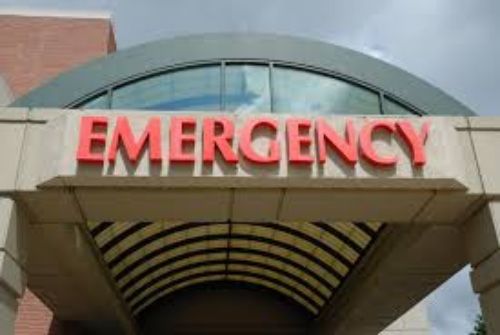Viewpoint: As COVID-19 Spreads, Where’s All the Money Hospitals Have Made?
At a hospital that recently announced layoffs during the COVID-19 crisis, hospital executives agreed to a 20% pay cut. That sounds impressive but the CEO makes over $1.9 million a year and the corporation has net assets or fund balances of $1.6 billion. Meanwhile, the shortage of N95 face masks for healthcare workers continues.

One of the ironies of the COVID-19 epidemic is when there is an increased need of frontline healthcare staffing, up to 43,000 workers in the healthcare sector are being laid off.2 This is also occurring in hospitals where services have been closed to both make space and free up protective gear to confront the COVID-19 epidemic.
In the non-healthcare sector, CEO’s of large corporations such as YUM (Kentucky Fried Chicken)2, Delta,3 GE,4 and Marriott5 are forgoing salaries to support pay for their employees.
However, this is not always happening in the healthcare sector, where CEO salaries can be larger than those in non-healthcare business, with the mean CEO salary from 22 major nonprofit medical centers reported to be $3.1 million in 2015.6 Instead, some hospitals which appear to be in stable financial condition are laying off employees.
A recently announced layoff occurred at a hospital in the southeastern region of the United States, where executives and hospital presidents will take a 20% pay cut. Although, this sounds impressive, according to the institution’s tax returns, the president and CEO of this hospital system has a salary of over $1.9 million and the corporation has “net assets or fund balances” of over $1.6 billion.7
Frontline hospitals have been hit extremely hard by COVID-19 where they have very little reserves. The disproportionate rate of deaths in African Americans compared to white patients may be due to this imbalance.8For example, another hospital system in the southeast has almost $2.4 billion dollars’ worth of “net assets or fund balances” as the nearby frontline university hospital has a negative balance sheet.7
Investments into our healthcare system infrastructure need to be prioritized and “net assets” should also include abundant stockpiles of personal protective equipment (PPE), ventilators and other emergency supplies. Not prioritizing this infrastructure in past financial budgets has not only placed infection preventionists (IPs) at grave risk, but also the entire populace and economy, since until our healthcare system is ready, the economy as a whole cannot be restarted and PPE will not be available for other frontline workers in the food and delivery sectors.
There is no excuse for running a system which is lean on hospital rooms, supplies and staff. Net-profits and assets are desirable, but not at the expense of public safety. Hospital staff are being asked to see patients under draconian conditions9and at the same time they do not have an adequate economic and healthcare safety net. Healthcare workers do not need paid sick leave, they need adequate PPE and worker’s compensation benefits, if they become infected. IPs are placing both themselves and their families’ lives at grave risk under the crisis management CDC infectious disease recommendations. That is the very least we can do for them.
References:
(1) Perspective: Health Care Sheds 43,000 Jobs in March, the Biggest Loss in at Least Three Decades. Altarum. April 3, 2020. https://www.vox.com/2020/4/8/21213995/coronavirus-us-layoffs-furloughs-hospitals
(2) Lucas A. Yum Brands CEO to forgo 2020 salary to fund general manager bonuses. CNBC. March 30, 2020. https://www.cnbc.com/2020/03/30/yum-brands-ceo-to-forgo-2020-salary-to-fund-general-manager-bonuses.html
(3) Johnson, EM. Boeing suspends dividend, CEO foregoes pay after coronavirus-related aid request. Reuters. March 20, 2020. https://www.reuters.com/article/us-health-coronavirus-boeing/boeing-suspends-dividend-ceo-foregoes-pay-after-coronavirus-related-aid-request-idUSKBN2173OQ
(4) Wolff-Mann, E. GE: An Update on the Challenge of COVID-19. Yahoo Finance. March 23, 2020. https://finance.yahoo.com/news/ge-challenge-covid-19-131500590.html
(5) Swaminathan A. Marriott CEO says coronavirus is ‘like nothing we’ve ever seen,’ cuts his salary to $0. Yahoo Finance. March 20, 2020. https://finance.yahoo.com/news/marriott-ceo-coronavirus-135644673.html
(6) Du, Jerry Y. MD; Rascoe, Alexander S. MD, MBA; Marcus, Randall E. MD. The Growing Executive-Physician Wage Gap in Major US Nonprofit Hospitals and Burden of Nonclinical Workers on the US Healthcare System. Clinical Orthopaedics and Related Research: October 2018 - Volume 476 - Issue 10 - p 1910-1919 doi:10.1097/CORR.0000000000000394
https://journals.lww.com/clinorthop/Fulltext/2018/10000/The_Growing_Executive_Physician_Wage_Gap_in_Major.4.aspx
(7) IRS Tax Exempt Organization Search: https://www.irs.gov/charities-non-profits/tax-exempt-organization-search
(8) The coronavirus is infecting and killing black Americans at an alarmingly high rate. The Washington Post. April 7, 2020. https://www.washingtonpost.com/nation/2020/04/07/coronavirus-is-infecting-killing-black-americans-an-alarmingly-high-rate-post-analysis-shows/
(9) Mencarini M., Et al. Hospitals 'burning through' PPE to fight the coronavirus turn to 'extreme measures' Courier Journal. March 30, 2020. https://www.courier-journal.com/story/news/2020/03/28/coronavirus-hospitals-turn-extreme-measures-find-ppe/2925721001/
Newsletter
Stay prepared and protected with Infection Control Today's newsletter, delivering essential updates, best practices, and expert insights for infection preventionists.